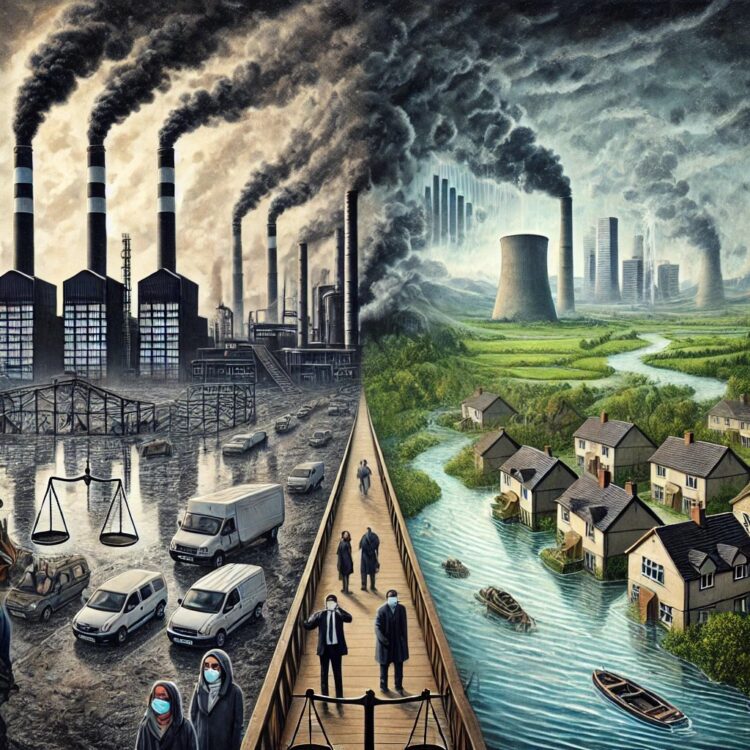
Climate change has emerged as one of the most pressing challenges of our time, with wide-ranging impacts on health, property, and ecosystems. The role of major environmental polluters in exacerbating climate change cannot be understated. These entities, which include industries and corporations emitting significant greenhouse gases, have contributed substantially to global warming. This warming has led to rising sea levels, extreme weather events, and worsening air quality, all of which pose serious risks to human health and property. The question then arises: should environmental polluters be held liable for the health issues and property damage resulting from their activities? The answer lies in examining the ethical, legal, and practical dimensions of such accountability.
The Health and Property Impacts of Climate Change
The health consequences of climate change are manifold. Rising temperatures contribute to heatwaves, which disproportionately affect vulnerable populations such as the elderly, children, and those with pre-existing conditions. Air pollution, exacerbated by the burning of fossil fuels, leads to respiratory and cardiovascular illnesses. Additionally, extreme weather events, such as floods and bushfires, not only cause immediate injuries and fatalities but also have long-term psychological impacts on affected communities.
Property damage is another significant consequence of climate change. In Australia, rising sea levels threaten coastal properties, while intensifying bushfires and floods destroy homes and infrastructure. Insurance claims from such disasters have surged, leading to increased premiums and reduced coverage for high-risk areas. These economic burdens fall heavily on individuals and governments, raising questions about the responsibility of polluters in contributing to such outcomes.
The Case for Holding Polluters Liable
From an ethical standpoint, the principle of “polluter pays” suggests that those who contribute to environmental harm should bear the costs of addressing it. Major polluters, particularly fossil fuel companies, have historically reaped immense profits while externalising the environmental and social costs of their activities. Many of these corporations were aware of the risks of climate change decades ago, as evidenced by internal documents, yet chose to prioritise short-term gains over long-term sustainability. This wilful neglect strengthens the case for their accountability.
Legally, there is growing momentum to hold polluters liable. Around the world, climate litigation is on the rise, with individuals, communities, and governments suing companies for their contributions to climate change. In some cases, courts have recognised the link between emissions and specific damages, setting a precedent for further action. For instance, in 2021, a Dutch court ordered Shell to reduce its greenhouse gas emissions, citing its duty of care to society. Such rulings highlight the potential for legal frameworks to address the disproportionate harm caused by major polluters.
Challenges and Counterarguments
While the case for holding polluters accountable is compelling, several challenges exist. One significant hurdle is attributing specific damages to individual polluters. Climate change is a cumulative problem, with emissions from countless sources contributing to its effects. Determining the extent of responsibility for each entity is a complex task that requires sophisticated scientific modelling and legal expertise.
Additionally, opponents argue that strict liability could deter economic growth and innovation. Industries facing significant financial penalties may pass on costs to consumers, reduce investments in clean energy, or relocate to jurisdictions with lax environmental regulations. These potential consequences necessitate a balanced approach that ensures accountability without stifling progress.
Towards a Sustainable Solution
To address these challenges, a multifaceted approach is necessary. Governments should implement robust regulatory frameworks to limit emissions and incentivise sustainable practices. Polluters should be required to contribute to climate adaptation and mitigation funds, which can be used to support vulnerable communities and restore damaged ecosystems. Transparent carbon accounting and mandatory emissions reporting can also help establish clearer lines of responsibility.
Moreover, public awareness and activism play a critical role in driving change. Grassroots movements and consumer pressure have already compelled some companies to adopt greener practices. By continuing to hold polluters accountable in the court of public opinion, society can reinforce the urgency of corporate responsibility.
Conclusion
The health issues and property damage caused by climate change are undeniable, as is the role of major polluters in exacerbating these problems. Holding these entities liable is not only a matter of justice but also a crucial step towards addressing the root causes of climate change. While challenges exist, they are not insurmountable. Through legal action, regulatory reforms, and public advocacy, it is possible to ensure that polluters bear their fair share of the costs, paving the way for a healthier, more sustainable future for all Australians.